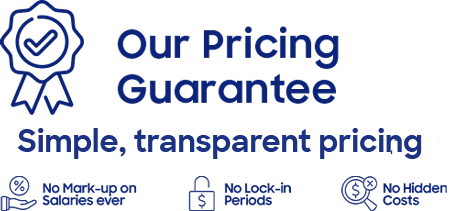Busting the myth of ‘quiet quitting’
Your employees are not “quiet quitting,” so is it possible you may be missing out on something?
Gabby, a 26-year-old writer working for a media company in Manila, goes to work on time, finishes her tasks faithfully, and clocks out on the dot every single day. She may be doing her tasks quietly, but she’s far from quitting her job, as the new internet buzzword would like to imply.
The term “quiet quitting” has exploded online after being introduced on TikTok. It refers to the attitude of an employee who is not “going above and beyond,” just clocking in, doing the job, and clocking out, with minimal interactions at work – possibly the opposite of the hustle culture.
Quiet quitting has caused quite a stir, especially when some people got the impression that the term looks down on people doing 8-hour work with the “bare minimum.” Many believed that, as the name suggests, quiet quitting is a form of resignation or surrender.
Gabby, who chose to be anonymous for this story, disagrees. For her, it’s just the way she works and that’s the routine that keeps her productive every day. In fact, doing what’s asked of her, and nothing more, keeps her from leaving her job.
“I prefer to work quietly without being bothered by anyone,” she said, stressing that having the space for her physical, mental, and emotional wellbeing is the reason why she chooses to stick with her job description.
Because of her routine, Gabby can go home early, spend quality time with herself and her loved ones, and sleep on time. On weekends, she has the energy to do some freelance work and pursue personal interests.
“My previous workplace was very unappreciative. It made me realise that sacrificing my mental health and sanity is not worth any boss or job,” the budding Gen Z professional added. She explained that if she’s quitting on anything, it’s not the job but the excessive stress that comes with it. For her, work-life balance is a priority.
The myth of “quiet quitting”
There’s no such thing as “quiet quitting,” people just do their jobs at their own pace, and that’s alright. Some tend to be overachievers, while some just clock in, clock out, and go through the motions. People are different – a truth that employers and colleagues must accept.
“We don’t have the same reason for entering a company. Not everyone is after a certain career aspiration or wants to go up the corporate ladder. Some workers just want to do their job, get decent pay, and enjoy life with their family and friends outside work,” she added.
Gabby, for one, came from a company where she went “above and beyond.” But in the process, she neglected her well-being. So, in her next job, she made a conscious effort to stick to her job description and leave some space for her mental and emotional health.
Most of the time, it all boils down to how managers connect with the people, how they engage and motivate, and get their buy-in. A 2021 study by consulting and research firm Gallup showed that only 34% of the workforce in the U.S. are engaged in the workplace.
Majority of the disengaged people in the workplace are professionals born after 1989 – the Millennials and Gen Z workers, who are not just looking for jobs but also meaning in lives outside the corners of the office.
And because people are different, the way managers engage each employee must be different, explained Naji. How you engage achievers and extroverts should be different from how you engage introverted workers.
Building meaningful relationships is key
The thing is, you cannot engage people if you do not even know them, which is why it is vital for managers to build meaningful relationships with the staff without overstepping personal boundaries. It’s a thin line that managers have to walk, but it is the key to a healthy workplace.
Employee engagement is not always fun activities, celebrations, raffles, and games, according to Naji, as real and genuine employee engagement happens in the daily conversations and interactions in the workplace.
“You really need to be a good listener. You need to listen and understand what’s valuable to them, what makes them tick, what inspires them – these are simple things but knowing them will show you how to engage each of your staff appropriately,” she added.
Putting a personal touch on your relationship with each of your staff will allow you to respond properly whenever you see sudden changes in behaviour or productivity, she explained. She adds that it also allows people to openly share their struggles, which is very important for a manager-employee relationship.
But it’s easier said than done, especially in the age of hybrid work setups, where managers and employees do not interact in the traditional sense. Technology, Naji stressed, can create a wall between managers and people, but you can also use that to your advantage.
“No matter how busy you are as a manager or as a leader, make time for the people. Meet them not just as a group, but also individually. Random calls where you just check up on them is good. It doesn’t always have to be a meeting about reminders and performance,” she said.
Providing a good salary and benefits package is one way to do it but giving space for work-life balance is as important. Some employees, Naji added, want to make an impact in their respective communities, and companies can look into how they can provide support.
You may also want to check on the bandwidth of your workforce, especially when you are experiencing sudden surges in company projects and tasks. Providing extra manpower support during these times helps maintain the quality of work while minimizing incidence of stress and low morale.
The global talent shortage is a major hurdle in maintaining a team that’s tired, shaken and stretched to its limits. Fortunately, there are solutions available to employers everywhere, such as outsourcing offshore or even nearshore. And whichever direction you take, always remember what truly matters – keeping your staff engaged, interested, and inspired to work with you.
Emapta is an Australian-owned and managed knowledge-based offshore staffing platform that offers flexible nearshoring and offshoring solutions tailored to address your need. We operate across the Philippines, Singapore, Malaysia, Vietnam, Sri Lanka, and Colombia. For over a decade, we have helped companies grow and adapt to the ever-changing market needs.















